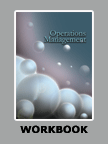



Case Details: |
Price: |
| Case Code |
: |
OPER074 |
For delivery in electronic format: Rs.
300;
For delivery through courier (within India): Rs. 300 +Shipping & Handling Charges extraThemes
Production Strategy/ Team Working/ Employee Empowerment |
| Case Length |
: |
15 Pages |
| Period |
: |
2000-2008 |
| Organization |
: |
BMW AG |
| Pub Date |
: |
2009 |
| Teaching Note |
: |
Not Available |
| Countries
|
: |
UK |
| Industry |
: |
Auto and Ancillaries |
Abstract:
|
In 2000, the Germany-based BMW Group (BMW) sold off The Rover Group (Rover
Group) that it had acquired in 1994, but it retained its iconic MINI brand. As
part of the changes initiated, BMW shifted production from Longbridge to Cowley
(in Oxford), the plant which had rolled out the original Mini. BMW wanted to
come out with a new MINI. However, the management at the new plant faced
challenges in upgrading the site and processes and in preparing for the launch
of the new vehicle. It also had to face the huge challenge of integrating the
erstwhile Rover and BMW cultures, which differed vastly from each other.
Besides, there was a strong feeling of 'us' and 'them' among the employees.
|

|
The massive layoffs that accompanied the
production shift from Longbridge to Cowley complicated matters
further. This prompted BMW to launch 'The New Oxford Way' (NOW)
program which was aimed at integrating the erstwhile Rover and
BMW cultures, improving productivity, and decreasing costs by
empowering the workers.
As part of the initiative, huge investments were made to
refurbish the Oxford plant as it prepared to come out with a new
generation MINI. A key component of the NOW was the Working in
Groups (WINGS) project that was aimed at increasing the
involvement of the workers by empowering them. The initiative
soon started showing results, leading to better employee morale,
reduced costs, and increased productivity.
In 2002, the production target (100,000 units) was exceeded by
60 percent. BMW was also credited with handling its production
strategy well in keeping with the high demand for the MINIs in
the subsequent years. In 2004, the Oxford plant rolled out the
500,000th MINI in August 2004, two years ahead of schedule, and
in the following year, production for the year crossed the
200,000 mark. The company was credited with transforming the
culture of the Oxford plant from a culture marked by
confrontation and negativism to that of a performance culture.
Issues:
» Study the production strategy adopted by the BMW Group pertaining to MINI.
» Understand the issues and challenges in job design and team working.
» Understand issues and challenges in employee empowerment.
» Understand how the culture of the BMW Group Oxford Plant was changed from that
of confrontation and negativism to a performance culture.
» Analyze 'The New Oxford Way' (NOW) program and the 'Working in Groups'
initiative.
Contents:
Keywords:
The New Oxford, Working in Groups (WINGS) project,
Performance Culture, change program, Teamworking, continuous learning,
self-steered teams, communication, empowerment, production strategy,
productivity, post merger integration problems, Industrial relations, Target
management process, training, reward management, team-building, group dynamics,
Plant Oxford, automotive industry, MINI
BMW Group Plant Oxford's 'The New Oxford Way' (NOW) Program: From Culture Clash
to Performance Culture
- Next Page>>

|
|










